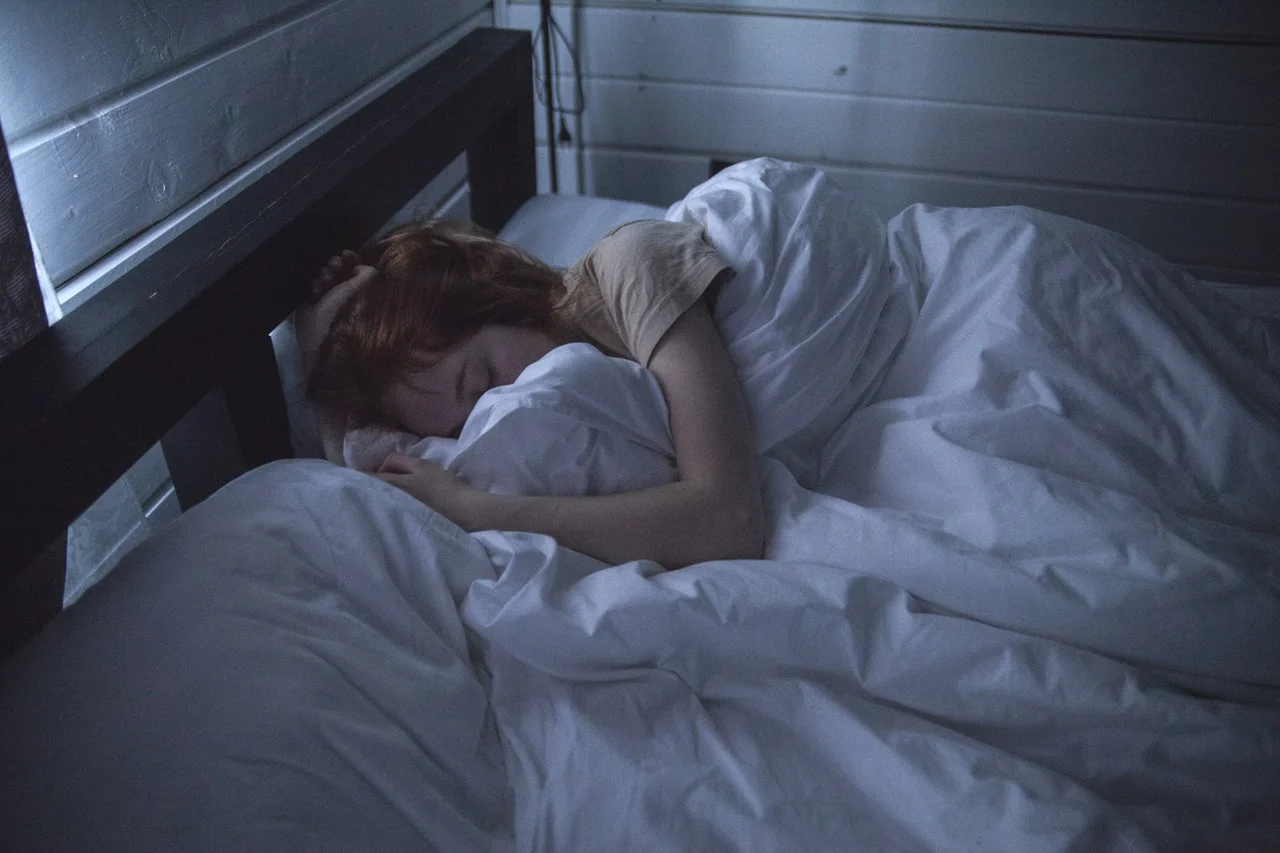Does anxiety and worry rule your life?
Does your mind go a mile a minute worrying about all the things that might go wrong?
Do you have trouble getting to sleep at night because the “What-if’s” crawl inside your ear?
Do you frequently feel fatigued or exhausted by your thoughts and worries?
Do you feel tense, jumpy or on edge much of the time?
Do you experience chest tightness, shortness of breath or a racing heart with no medical explanation?
Do you have frequent intestinal distress unrelated to a physical illness?
Do you suffer from frequent unexplained headaches?
Have you ever had a panic attack?
If these are signs and symptoms you are experiencing then you may be struggling with anxiety. Anxiety comes in many shapes and sizes including social anxiety, generalized anxiety, performance anxiety (tests, public speaking, etc) and many more. It is more than just everyday worries and stress, which we all experience from time to time due to outside stressors like deadlines at work or financial strain.
People without anxiety commonly feel stressed out when a deadline is coming up at work or school, and it will motivate them to take action. People with anxiety will often experience a litany of worries and negative thoughts related to the upcoming deadline including stories about all the possible ways things could go wrong and the catastrophic results that will ensue (like saying something embarrassing in front of everyone and then losing their job). This leaves them feeling overwhelmed and paralyzed - unable to take action.
Anxiety often feeds on itself until you get to the point where you start to feel anxious about your anxiety and can sometimes feel as though you’re spiraling out of control. When anxiety becomes overwhelming and keeps you from living life the way you want to, it may be time to seek help.
Anxiety is very common
If you checked off several of the items in the list above, do not despair, you are not alone. According to the Anxiety and Depression Association of America: Anxiety is the most common threat to our mental health with 40 million Americans being affected every year. Anxiety touches people from all walks of life and often affects us in ways we don’t even realize.
People suffering from anxiety will often also end up suffering from depression, and vice versa, the two go hand in hand in a vicious cycle of worry and then exhaustion. People develop all sorts of different ways to try and cope with their debilitating worry that only ends up getting in the way of their lives and goals even more: drinking, workaholism, perfectionism, avoiding stressful situations, etc. But you don’t need to keep doing these things that cause additional pain.
Anxiety relief is possible
Millions of people struggle with anxiety every single year and there are things you can do to help overcome the pain and worry now. Anxiety is highly treatable, despite the fact that just over 35% of people who suffer from anxiety seek treatment. Many people forgo treatment, thinking that they should just “try harder” or “be stronger”, but suffering from anxiety is not a personal failing, and sometimes when we are stuck in a difficult pattern it’s beneficial to reach out for help.
I have seen clients go from experiencing chronic anxiety and panic attacks for years to being able to re-engage in their lives again after psychotherapy.
What if you could…
Slow your busy mind and fall asleep easily at night
Feel calm and be able to relax and enjoy simple daily pleasures
Reduce or eliminate panic attacks
Relieve headaches, IBS, or muscle tension in your neck, back or shoulders
Stop worrying so you have energy left to spend doing what you love
What does anxiety treatment look like?
Anxiety counseling is individualized based on the needs of each client, but there are several approaches I typically draw from to help you work with your anxiety. First and foremost, therapy is a safe space for you to come and share your experience, whatever it may be, in a non-judgmental environment.
We will work together to identify strengths you already have that can be leveraged in dealing with your anxiety, because you are the expert on you. I will offer tools and strategies for helping you overcome your anxiety, including steps that can be started immediately. My approach is influenced by mindfulness and nature-based therapies, both of which have been shown to reduce stress and anxiety on a biological level. And no, that doesn’t mean we will have to go backpacking or meditate on a mountain top. I use simple practices that can be incorporated into your everyday life.
We will also work with some of the thought and behavior patterns that might be part of your anxiety using research-backed techniques like, cognitive behavioral therapy (CBT), mindfulness practices and nervous system regulation to help calm your system when it feels overwhelmed. I have had clients come back after just one or two sessions and tell me what a difference it made for them to take a few moments to breathe or try one of the mindfulness techniques I taught them.
Together we will find your path to healing.
Now, I know you may still have some concerns or questions about treatment…
I’m worried about the cost of anxiety counseling
I know that many people are intimidated by the idea of spending money on their mental and/or emotional health. Sometimes people feel selfish or self-indulgent for spending that money on themselves and their mental health, whereas if their car broke down they probably wouldn't think twice about spending the money to fix it because they need to be able to get around. Well, your mind and body are vehicles for you to get around in just like your car is, and I would argue they are vastly more important because you can't buy another one like you can with a car...you have to take care of the one you've got!
What is not getting treatment costing you?
My alternate question for you to ponder is this: What is not getting treatment costing you? What or who are you avoiding in your life because of your anxiety? What are you unable to do because of your worry, fear or panic? And how much are these activities or relationships worth to you in the long run? You deserve to have peace of mind and be able to relax and enjoy your life. Treatment is an investment in your own health and well-being, and it is not selfish or wasteful. When you are happy and healthy, you have more to offer yourself and to those around you.
Insurance may cover some of the cost of therapy
As a way to make treatment affordable I provide my clients with something called a Superbill that they can submit to their insurance company for partial reimbursement of treatment costs. Each insurance company is different, but the Suberbill has all the informstion they should need to reimburse you. If you are concerned about treatment costs, inquire with your insurance company about their out-of-network reimbursement rates.
I offer some sliding scale spots in my practice
If you do not have insurance, let me know, I also offer a limited number of sliding scale spots in my practice.
I should be able to handle this on my own without therapy…
I know there can be stigma in our culture about reaching out for help or going to therapy, so I will say this: Be gentle with yourself and try not to let the judgments of others influence a decision that might be in your best interest. When we “should” ourselves, we are passing judgment, and that often results in feelings of shame or failure - and that is NOT what this is - you aren’t a failure. Knowing when it’s time to reach out for help is a sign of intelligence, not weakness, and many of the best leaders thrive by making smart choices and reaching out for support when they need it, because no one can do everything!
Secondly, therapy is like a back massage: it’s awfully difficult to perform on yourself. Sure, you could try rolling around the floor on a ball or purchase a massage chair, but I think you get my point - it’s not quite the same as getting a massage from a professional. Self-help has it’s place. And sometimes going to a professional speeds up the process because we can guide you through the process in a more efficient way.
What about anti-anxiety or sleep medication?
Some people find medication to be helpful in their anxiety treatment to help them sleep or calm their nerves, and some don’t. This is a very individual thing and varies from person to person. If you already take an anti-anxiety medication or something to help you sleep, I will work with your prescriber so we can coordinate your treatment in the best way possible for you. Studies have shown that while medication is helpful for some people, it is most effective when combined with psychotherapy, rather than taking just medications alone.
Stop feeling paralyzed by worry and start living your life!
I have helped many people find relief from their anxiety. Schedule a free consult call now to see how your life might be different if you could stop worrying or avoiding things, and start living again.








